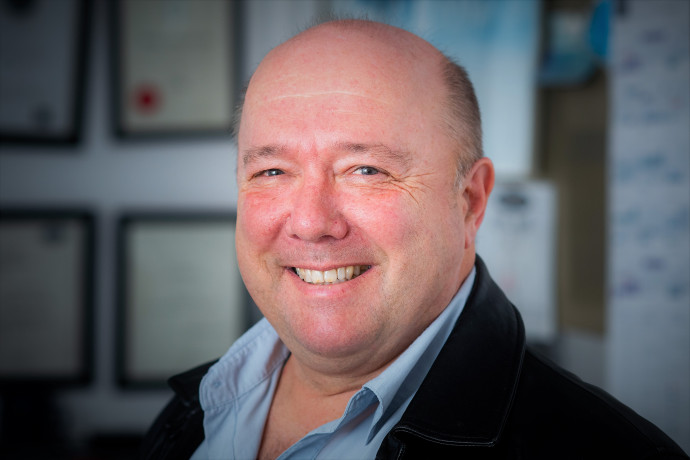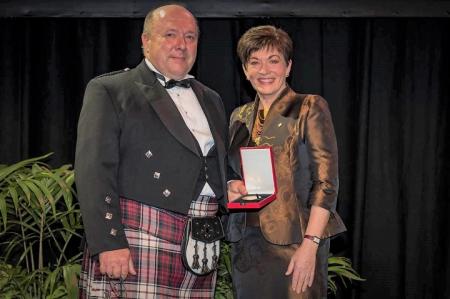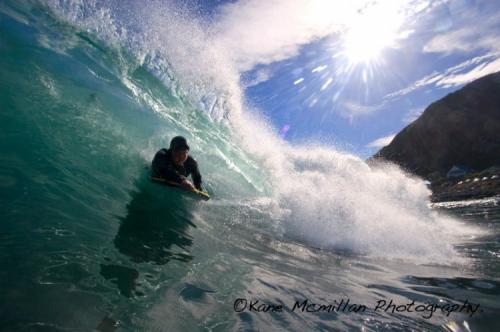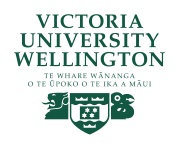News
Published 29 January 20192019 NZ Rutherford Lecture: thinking logically

Can the power of computing be improved without using a computer? 2018 Rutherford Medal winner Professor Rod Downey explains how mathematical logic may hold the solution in his upcoming national talk tour, presented by Royal Society Te Apārangi in partnership with Victoria University of Wellington.
Mathematician Professor Rod Downey FRSNZ, winner of the prestigious Rutherford Medal at last year's Research Honours Aotearoa is heading to five centres throughout Aotearoa New Zealand for the 2019 NZ Rutherford Lecture in March.
Deputy Head of the School of Mathematics and Statistics at Victoria University of Wellington, Professor Downey was awarded the Rutherford Medal for his revolutionary research into computability, including development of the theory of parameterised complexity and the algorithmic study of randomness.
Rod says about his work: "There are a whole bunch of problems we know to be theoretically hard to the extent that no practical algorithm should solve them. But, in actual fact, we have techniques which work very well in some instances. However, we have no idea why – understanding why it is that our methods work would allow an enormous advance in the design of algorithms".

Professor Rod Downey being presented the Rutherford Medal by the Governor-General of New Zealand, Her Excellency Dame Patsy Reddy, at Research Honours Aotearoa in Te Papa Tongarewa, Wellington on 17 October 2018
Australian born but a long-time Wellingtonian, Rod is internationally renowned for his contributions to mathematical research. Last year he was the first logician from outside Europe and North America to deliver the Annual Gödel Lecture for the Association for Symbolic Logic, and in 2016, Professor Downey was the third New Zealander to win the Humboldt Research Award.
Royal Society Te Apārangi President Professor Wendy Larner FRSNZ says: "The Rutherford Medal is our highest science honour and is presented to eminent researchers in science, mathematics, social science, or technology. We are pleased that Professor Rod Downey's extraordinary talents have been recognised with this achievement, and he joins a distinguished circle of New Zealand researchers who have also advanced knowledge in their fields."
Chief Executive of Royal Society Te Apārangi, Dr Andrew Cleland FRSNZ says that the annual NZ Rutherford Lecture is a highlight of the Society's public programmes. "Professor Downey's talk will be illuminating not only for those who maintain an interest in mathematics and computing technology, but are interested in the history of 'logical thought' going back to the time of Aristotle."
On the connection between his field of research and improving technology, Rod says that computers were born from logic. "Logic is the part of mathematics that takes language seriously and is the "calculus" of computing. My work has given some new approaches to understanding how to cope when certain problems seem too hard to solve exactly in any reasonable time. We show that a certain discourse can (sometimes) solve the problem in practical situations."
"Whilst I tell any prospective graduate student their main job will be coping with frustration, very occasionally you get insight into something. When this happens you see a bit of a beautiful narrative generated by the world. The deeper the problem the more satisfying this is, but then there's also the greater the chance of being frustrated forever."
A keen surfer and Scottish country dancer, Rod explains that it is little wonder that he loves his profession. "People love solving puzzles. I do this as a job! Here is some small part of the mathematical landscape, which we have no explanation for, and understanding this is very satisfying. I particularly like asking questions such as 'why is it so?' I am sure this is a common characteristic of all scientists, but the difference is that many of my questions and investigations simply follow my intuition that 'something' is interesting."

Rod catching a wave on Wellington's South Coast
2019 NZ Rutherford Lecture
Logic, Maths and Modern Society
Professor Rod Downey FRSNZ
Auckland | Auckland Grammar School, Centennial Theatre - register for Auckland
Tuesday 26 March 2019, 6pm
Palmerston North | Palmerston North Boys' High School, Speirs Centre, David Syms Auditorium - register for Palmerston North
Wednesday 27 March 2019, 6pm
Wellington | Victoria University of Wellington, Kelburn Campus, Memorial Theatre - register for Wellington
Thursday 28 March 2019, 6pm
EXTRA TALK ADDED: Wellington | Royal Society Te Apārangi, 11 Turnbull St, Thorndon - register for second talk Wellington
Tuesday 2 April 2019, 12 noon
RESCHEDULED Dunedin | University of Otago, Castle 1 Lecture Theatre - register for Dunedin
Tuesday 13 August 2019, 5.30pm
(Note: those who registered for the previous date are still registered for the rescheduled date. Please cancel if you cannot make the new date)
Presented with support from University of Otago
RESCHEDULED Christchurch | Middleton Grange School, The Grange Theatre - register for Christchurch
Wednesday 14 August 2019, 6pm
(Note: those who registered for the previous date are still registered for the rescheduled date. Please cancel if you cannot make the new date)
These events are free to attend and you are welcome to turn up on the day, however, due to their expected popularity, please register to guarantee your seat(s) by following the above booking links.
We are proud to present the 2019 NZ Rutherford Lecture in partnership with Victoria University of Wellington.

Views, information or opinions expressed at event belong to individuals involved and may not reflect those of Royal Society Te Apārangi.
RNZ Nine to Noon interview
Rod Downey was interviewed by Kathryn Ryan ahead of his lecture tour: The computer says yes: Logic, algorithms & society
Sir Ernest Rutherford
I am a great believer in the simplicity of things and as you probably know I am inclined to hang on to broad and simple ideas like grim death until evidence is too strong for my tenacity.
